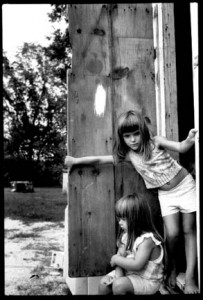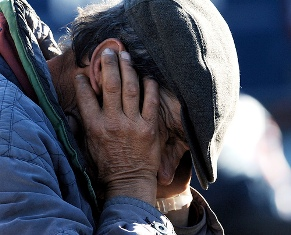 When God is reminding his people of the covenant promises in Deuteronomy, he vows that if they worship idols they will lose their land. If they commit idolatry/adultery with the foreign gods, if they worship these other dieties, God will send them into exile. He made those promises over and over again in Deuteronomy.
When God is reminding his people of the covenant promises in Deuteronomy, he vows that if they worship idols they will lose their land. If they commit idolatry/adultery with the foreign gods, if they worship these other dieties, God will send them into exile. He made those promises over and over again in Deuteronomy.
And the people worshiped idols.
Almost immediately upon entering the Promised Land, God’s people began worshiping the foreign gods. They built high places and shrines, they offered sacrifices and song, they worshiped idols. Off and on for more than 700 years, God’s people worshiped these false gods. For over seven centuries, our Lord showed tremendous patience with his people. He exhibited great restraint in not following through on his promises to strip them of their land for these atrocious acts of rebellion. They turned their backs on YHWH. They disrespected his name. They ignored him and sometimes cursed him. But our Father was long suffering with his chosen people.
In Amos, we see for the very first time in Scripture a distinction among God’s holy people between the rich and the poor. Our God speaks through the prophet and points out that the rich were getting richer at the expense of the poor. The orphan, the widow, and the stranger in the gate were not just being ignored, they were being exploited by the wealthy, for the benefit of the elite.
“They sell the righteous for silver, and the needy for a pair of sandals.
They trample on the heads of the poor as upon the dust of the ground and deny justice to the oppressed.
Father and son use the same girl and so profane my holy name.
They lie down beside every altar on garments taken in pledge.
In the house of their god they drink wine taken as fines.”
~Amos 2:6-8
“You hate the one who reproves in court and despise him who tells the truth.
You trample on the poor and force him to give you grain…
You oppress the righteous and take bribes
and you deprive the poor of justice in the courts.
~Amos 5:10-12
God points out the injustice against the poor, the systemic oppression against those most defenseless in society, the exploitation of those who are unable to help themselves, the widening gap between the rich and the poor, and he condemns it. This is completely contrary to God’s eternal plan for his people, this is exactly the opposite of what he’s wanting to do through his children for the sake of the rest of the world. So he condemns them and he takes away their land.
In less than 25 years.
It’s almost immediate. In less than one generation, God sends the Assyrians into his chosen nation and, in a divine act of punishment, demolishes them for their sins against the poor.
That’s astonishing, isn’t it?
 It appears in Amos that repeated breaking of the “first tablet” of the Law — the commandments dealing with love and God and respect for his holy name — isn’t nearly as offensive to God as the breaking of the “second tablet” which deals with love of neighbor and respect for our own brothers and sisters. Jesus and all the rabbis before him taught that love of God was the most important command and love of neighbor the second. I believe that is still true. But it seems that God shows much more patience when we sin directly against him than when we sin against the poor and the weak. It looks like God’s wrath is quickly aroused when we sin against the marginalized and the defenseless. He won’t tolerate us abusing or ignoring the “least of these.”
It appears in Amos that repeated breaking of the “first tablet” of the Law — the commandments dealing with love and God and respect for his holy name — isn’t nearly as offensive to God as the breaking of the “second tablet” which deals with love of neighbor and respect for our own brothers and sisters. Jesus and all the rabbis before him taught that love of God was the most important command and love of neighbor the second. I believe that is still true. But it seems that God shows much more patience when we sin directly against him than when we sin against the poor and the weak. It looks like God’s wrath is quickly aroused when we sin against the marginalized and the defenseless. He won’t tolerate us abusing or ignoring the “least of these.”
There are at least two lessons here: One, we must pay careful attention to our attitudes and our actions regarding the weak and the poor. The comments we make, the jokes we tell, the thoughts we think, the deeds we do or don’t do, the decisions we make — so many of these things impact the defenseless people around us. We should be careful to honor them. We should be diligent to help them. And, two, in the manner of our Lord, we should be much more offended when someone treats another harshly and much less offended when we ourselves are treated harshly. We should show more patience and more understanding when we are neglected or harmed. We should be quick to speak up and act out when the least among us are similarly neglected or harmed.
Amos teaches us that God takes our behavior seriously. Our worship is meaningless to us and to our world, and an offense to our Lord, if it doesn’t compel us to serve others in his name and in his manner every day.
Peace,
Allan
Leave a Reply